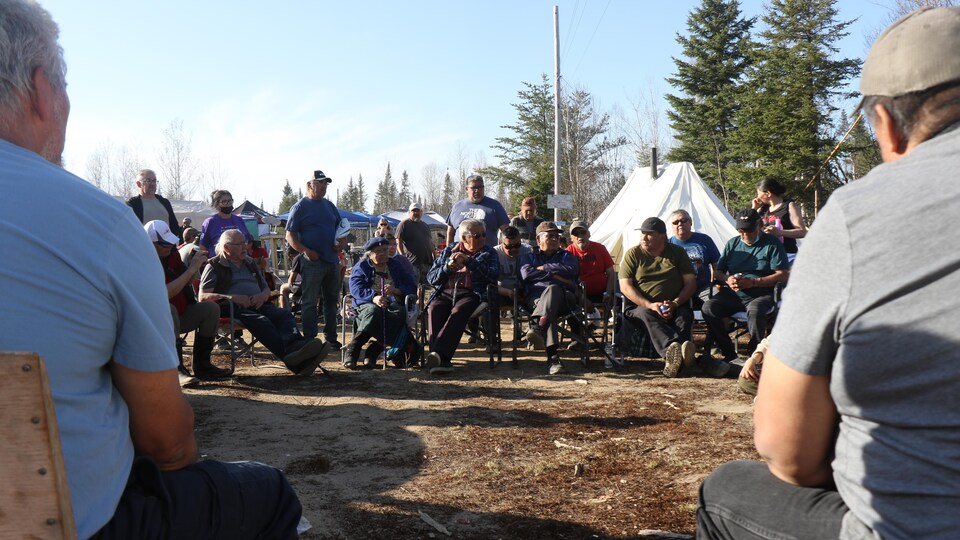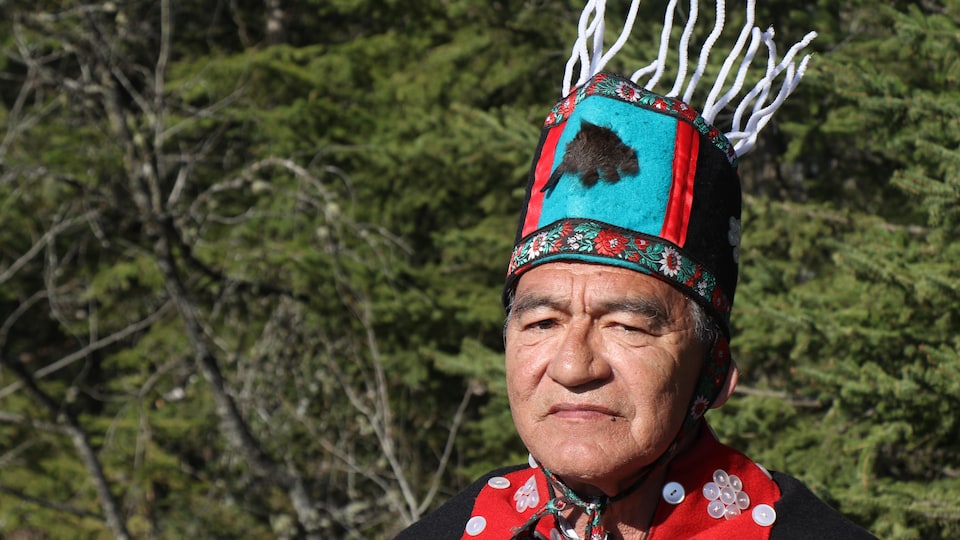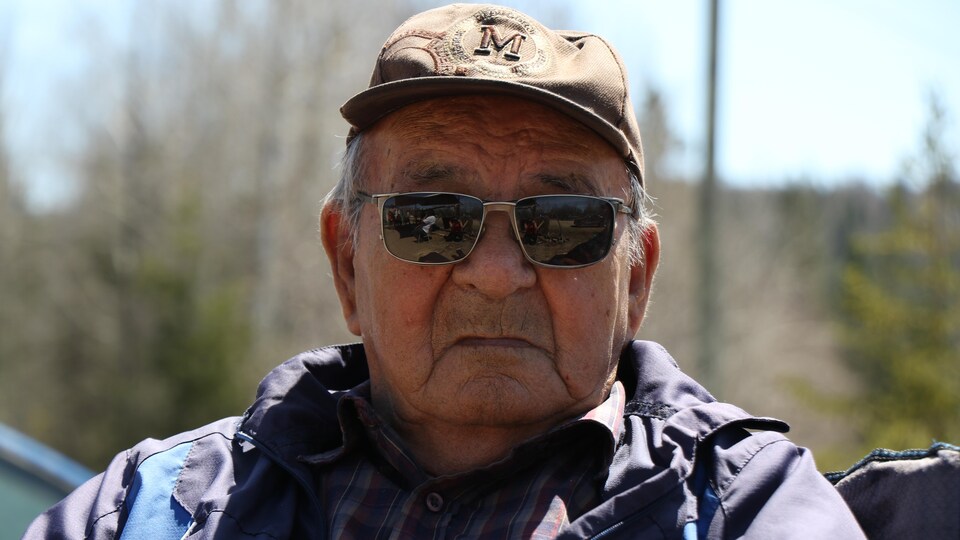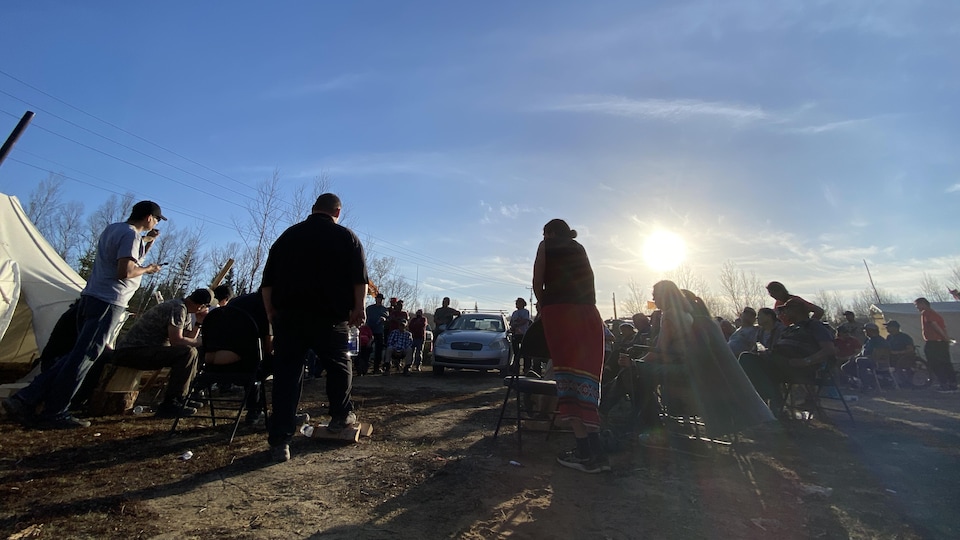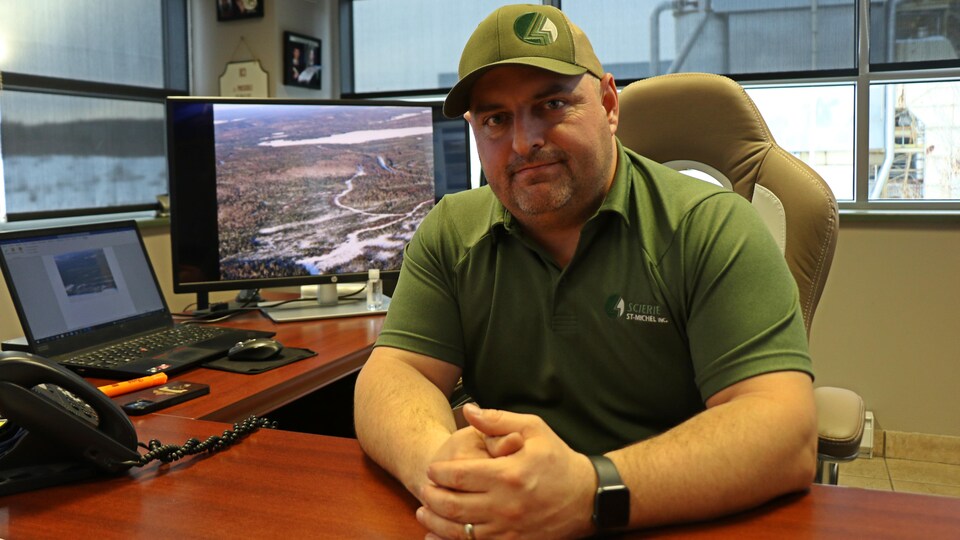The new logging season is fast approaching, but the file is still not settled in Lanaudière where the Atikamekw of Manawan implemented a moratorium a few months ago. A road barrier prohibits entry into logging companies.
Like foresters, they are breathless, worried, awaiting the results of an investigation into a disputed logging sector and the conclusions of the work of the Quebec government’s working committee.
Robert Echaquan stared at the floor. Around him, about twenty of the 32 heads of the territory were present as well as other members of various families. A little more, the young people are waiting to play the drum, other families are talking to each other.
The place to discuss the future was not chosen lightly. Here, at kilometer 60 between Saint-Michel-des-Saints and Manawan for three months, a road barrier was held day and night to prevent forests from passing through and entering the territory by forest road. .
Robert Echaquan is direct: he no longer wants any reduction in his territory. His family was the first to shut down forest operations in January, thanks to an administrative law enacted by Manawan’s Atikamekw Council allowing the moratorium to be enforced. He was followed by the family of Henri Dubé, who put the dam in the area.
If Robert Echaquan is determined, he is still worried. What we are doing is starting to get dangerous, he says. He further said that an Atikamekw living in Saint-Michel was threatened.
Sitting next door, Salomon Ottawa, 28, expressed his stress at the possible return of the foresters. He fears a possible rivalry, but he wants the movement to continue.
A man speaks and evokes fear in a scenario like in Wet’suwet’en. Many Aboriginal people were arrested by the RCMP during protests against the Coastal GasLink pipeline project.
The reference is also not insignificant because the hereditary Wet’suwet’en leader Na’moks came to unity at the dam. It was also, he says, his highlight of his week in Quebec.
” I have come to show that they are not alone. You are not alone when you do the right thing. They are in danger, like us, of being labeled, that people say they are radicals, but they are not. This is their land, their history. They do it in their heart. “
Unity
We feel tense with the next logging season that should begin at the end of May, beginning in June, confides Jean-Roch Ottawa. The former Manawan chief owns the Manawan Forestry and Territorial Services company.
So far, he is not affected by the effects of the moratorium, as he conducts forestry work in the sectors two or three years after the cuts. Through his presence, he came to show his support for what he describes uprising.
More than a year ago, Manawan territory leaders called for a moratorium. Without a response from Quebec, the community decided to pursue a moratorium and then the application of regulations.
Consciousness is there now. I like it because the message arrivedindicates Gaston Moar, head of the territory.
Another, old Jo Ottawa, makes sure of that little profit was made, but still not understood by the government. However, he is looking forward to the next few years. Hopefully not anymore hinarass so that the cuts were made, hoping that the forests would not bite more than agreed, hoping that the compensation would be more fair.
” I encourage the leaders of the territory to keep going, because they (the forests) will not stop. “
Raise hands. In unison, the territorial leaders decided to keep the dam against foresters, but let other users pass: vacationers, fishermen, hunters. Other actions may be considered in the future.
I begged to keep the camp here, as it was a symbol of our fight against the foresters and the government. Everyone knows where we arelaunched Frédéric Flamand, which usually ensures permanence at 60 kilometers.
A long wait
The dam is therefore maintained until the results of the investigation into the partially cut sugar bush and the conclusions of the work of the working committee are not released.
In February, Henri Dubé’s family accused Scierie St-Michel of cutting and making a path into their sugar bush without permission, which the company denied.
The Minister of Forests, Wildlife and Parks launched the investigation more than two months ago. And the lack of conclusion in any way does not alleviate the fears of the Dubé family, as of the president and director of Scierie Saint-Michel, Jean-François Champoux.
It is absurd, unacceptable that the investigation report has not been released. That makes no sense. This is disrespect for the family, repeats several times Jean-François Champoux. According to him, this long wait is of no help in approaching the return of the machines to the territory.
A working committee to seek a unified basis aimed at respecting the Atikamekw so-called “nehirowisiw” way of life in land use planning and management was set up in February between Manawan, the Ministry of Forests and the Council of Atikamekw country. He was about to finish his work.
Broadly speaking, we demand responsible forest management, balance between their activities and respect for our rights and ultimately, participation in development.indicates elected Council member and committee member, Glenn Dubé.
Atikamekw no longer aims to be a spectator.
Concerns of foresters
Warriors walk on the shells, explained the general manager of the Crête group, Sébastien Crête. His company first closed operations in January.
Normally, in May, the forests have already received their cutting permits, but this year, they are being granted gradually for Nitaskinan, the Atikamekw ancestral territory in the Manawan sector.
However, without cuts soon, Sébastien Crête’s company risks finding itself without raw materials. Its Chertsey plant is running at 20%. Saint Faustin’s only runs one shift.
So he said he was very worried.
” We don’t have much information. It’s scary not to know and we don’t know how next season will be. This is very worrying. “
Same story by Jean-François Champoux. He has always planned to start cutting from June 6, in sectors where families have embraced solidarity, he pointed out. Enough to start the season without rushing other families.
Because he said he wanted to give the working committee a chance. We try to find solutions without hurting the discussions in the country to be conducted. We want to be given the opportunity to find a solution. But time runs all the same, he recalls.
Sébastien Crête hopes that the working committee’s conclusions will be made possible clarify the rules of the game so as not to have a plan that changes along the way.
I want everyone to find their account, from winner to winner. If necessary, let them come to a new agreement. There is the peace of the brave. It has its good and bad, but at least it provides clear rules of the game and the downfall is known to everyone. This can be a good wayhe concludes.
Source: Radio-Canada
